日本語
Please give us coments!→shirou.fukushima.ocha@gmail.com
Questionnaire survey
Next, we compared the questionnaire, for high school students of New Zealand which don’t have nuclear power plant and Netherland which use only one by using Google Form, with Japan, although the population was small. All numbers in the pie chart represent the number of responses.
[Q1]
Immediately following a very strong earthquake, what is your primary concern? Please select an answer and explain the reason.(Choose one(count all who select more.))
[Result]
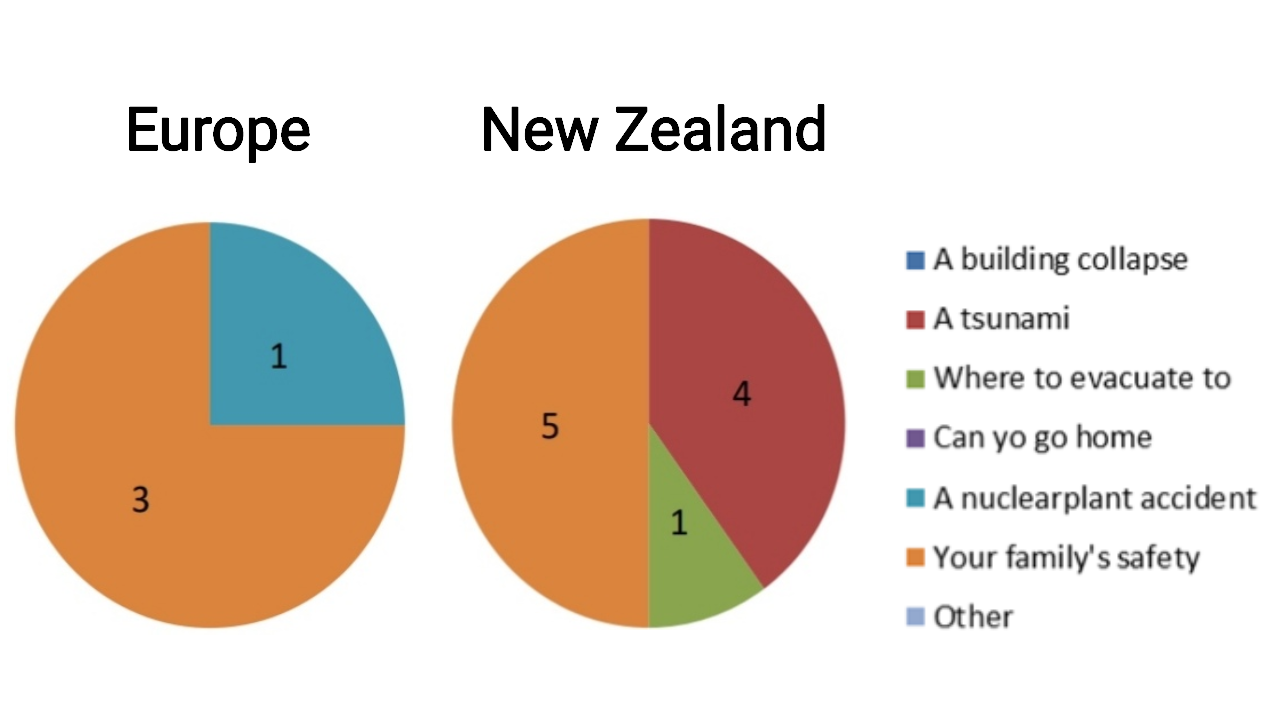
[Analysis]
The concern about “Your family’s safety” is most was common with Japan. But the reason why there was no voice to worry about “A building collapse” was, although the population is small, that the countries have different types of building, such as few high-rise buildings, from Japan I thought. And an island country, New Zealand, the same as Japan, also has great fear for “A tsunami”.
[Q2]
Do you have any preparations for dealing with a disaster such as a major earthquake?
[Result]
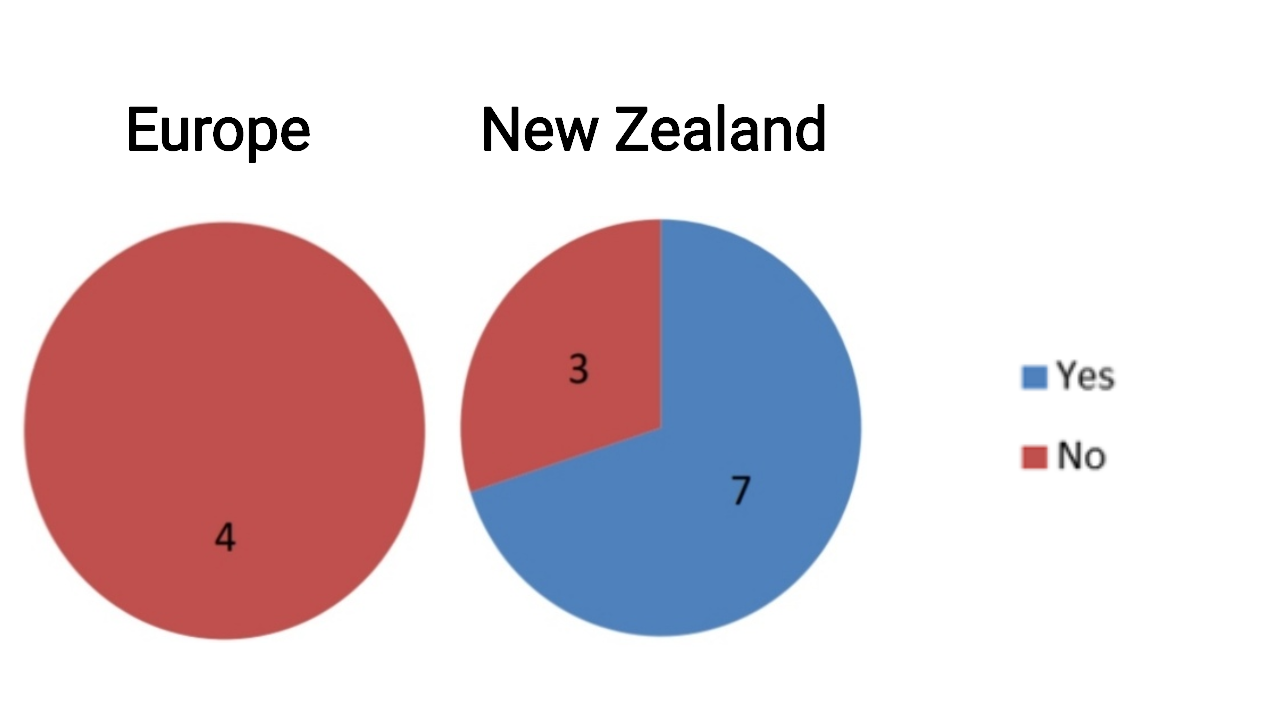
[Analysis]
I got an impression that in New Zealand, a number of people who were taking measures against earthquake was a lot. No "Yes" was found in Europe seems to be influenced by not only having problems with the number of answers, but also rarely having earthquakes there.
[Q3]
If you answer “Yes” to Q2, what are your preparations? Please select all that apply.(Multiple answers allowed)
[Result]
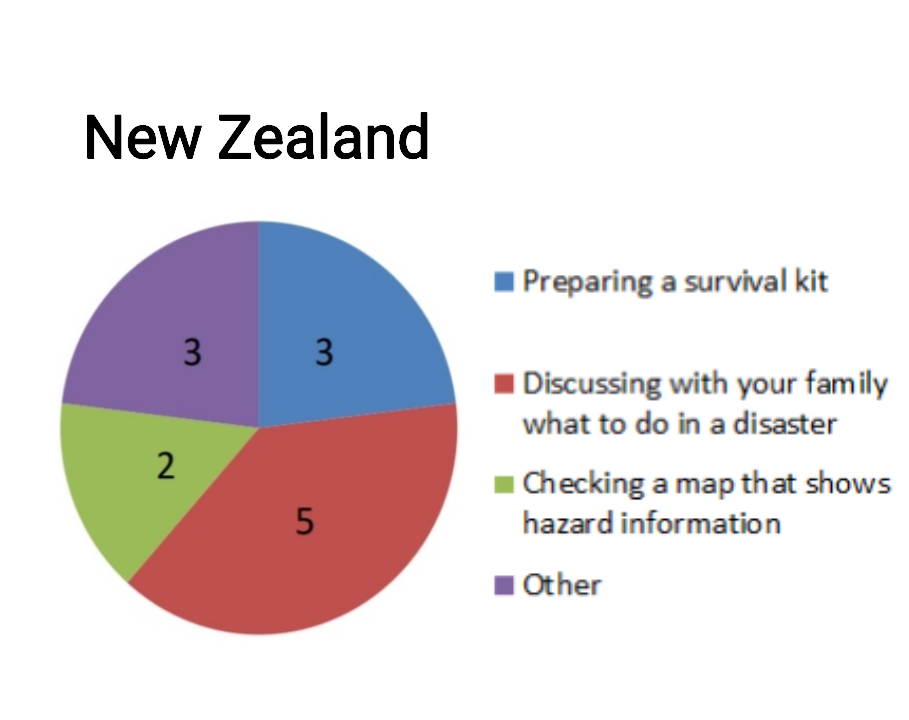
[Other]
:・At a young age we are taught in school to find the nearest thing we can hide under ,such as a table, take cover underneath it, hold onto it and vover our head and neck with our free arm until the shaking has stopped.(New Zealand)
・Get to the safe spot at the domain.(New Zealand)
・In a disaster people can get well a little bit violent and sometimes you gotta back that extra bit of protection. We like to say that were not violent but in a crises no knows what we might do to each other. when I say extra things I do not mean a gun, we don't want to kill each other, we just would want to survive. It's all about survival.
[Analysis]
Compared with Japan, measures against earthquake in New Zealand seemed to be actively conducted not only on the material side but also the communication with their family. Also, looking at the answer of "other", it seems that there are many people who were taught what you should do first was protecting their own at the school and importance to that.
【Questions about Nuclear Power Generation】
[Q1]
What comes to mind when you think of a nuclear power plant? Please select all that apply.(Multiple answers allowed)
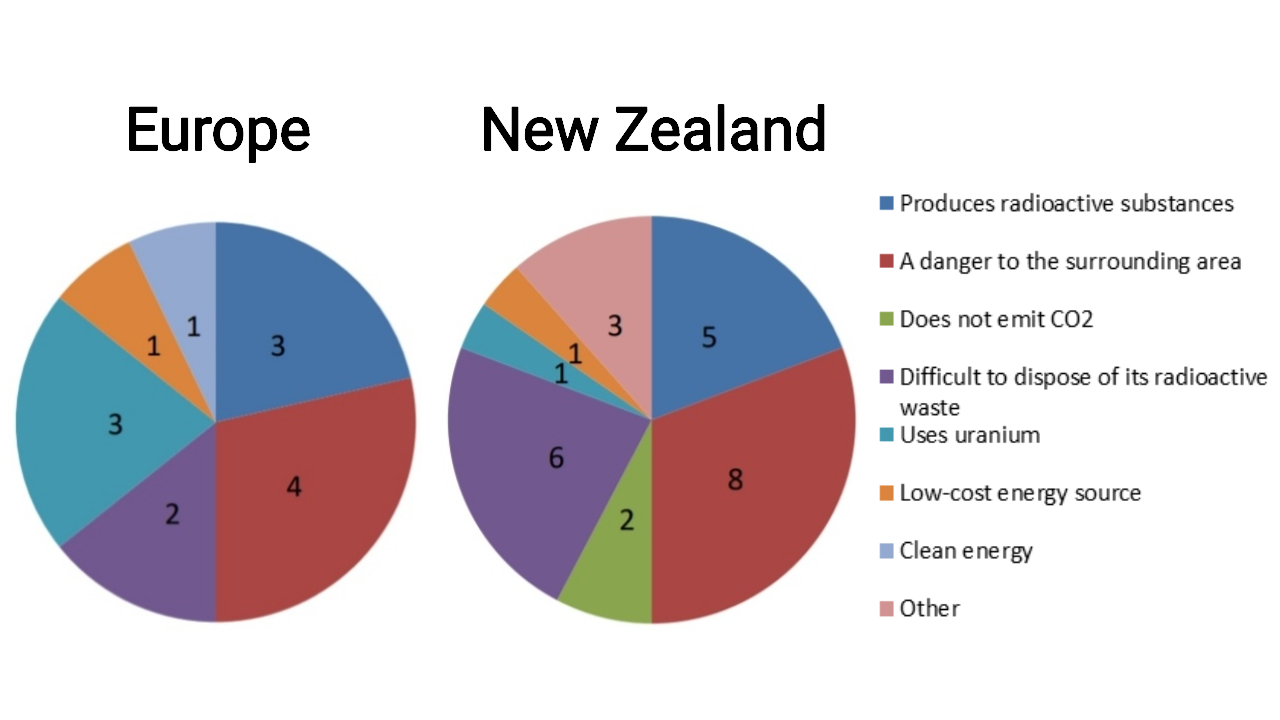
[Other]
:・Death if the nuclear plant exploded and contaminated the area.(New Zealand)
・A bomb(New Zealand)
[Analysis]
In Japan, it appears that there are deep-rooted positive images such as "Does not emit CO2". On the other hand, many negative images such as "A danger to the surrounding area" and “Produces radioactive substances" were seen overseas. We can think that the difference of images for nuclear power generation affect each country's energy policy.
[Q2]
Do you agree that your country should have nuclear power plants?
[Result]
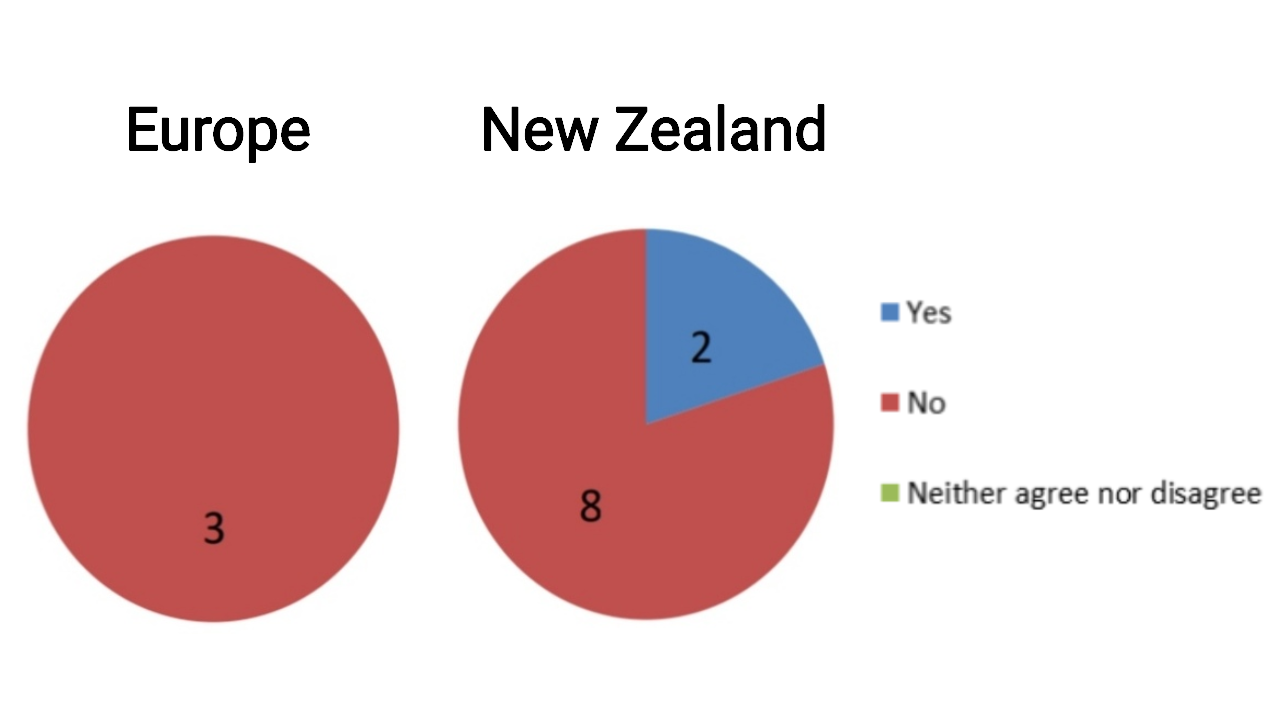
[Analysis]
A number of foreign people who object to nuclear energy was overwhelmingly more than that in Japan. They actually adopt no nuclear power plants, but I keenly felt that there is fundamental difference of awareness for nuclear power generation between Japan and the world.
[Q3]
What do you think about Tokyo having relied on some electricity generated by the Fukushima nuclear power plants?
[Result]
Tokyo
・・I think in the urgency of needing electricity it may seem as an easy solution to rely on nuclear energy but in the long term it was unreasonable and dangerous.(Germany)
・Good but concerning should any problems happen to the power plant.(New Zealand)
It is a risk to the residents of nearby areas, needs to be monitered closely.(New Zealand)
・I wonder forcing responsibility on Fukushima
Fukushima
・I understand that it is necessary to meet the needs of the people of Tokyo however I think that it would be a good idea to shift to a less dangerous source of energy if possible.(New Zealand)
・I think it's a good thing because you do save quite a lot of money on energy, considering on how Tokyo is Japan's capital city but also it is quite a big city.(New Zealand)
・That they need to find another more enviormentally friendly way to produce power.(New Zealand)
・I think that it was most likely beneficial at the time, before any natural disasters happened.(New Zealand)
・I think that they should find another way to generate electricity.(New Zealand)
・I think it’s good for them if that what they want to have in their country then that's their decision. If they like it then that's that. i just don't like some of the negative things that come from nuclear energy if things go south. Manuka-Rose signing off.(New Zealand)
・I think they should use solar or wind instead.(New Zealand)
[Analysis]
We received ideas mean that they were in favor like "I think it's a good thing because you do save quite a lot of money on energy, considering on how Tokyo is Japan's capital city but also it is quite a big city." On the other hand, we had great number of voice as if "Good but concerning should any problems happen to the power plant." that question how to take responsibility. Opinions which recommend using renewable energy as substitute energy nuclear power, As a result, we were forced to think about Japanese energy use.
 previous page Questionnaire in Japan←
previous page Questionnaire in Japan←
